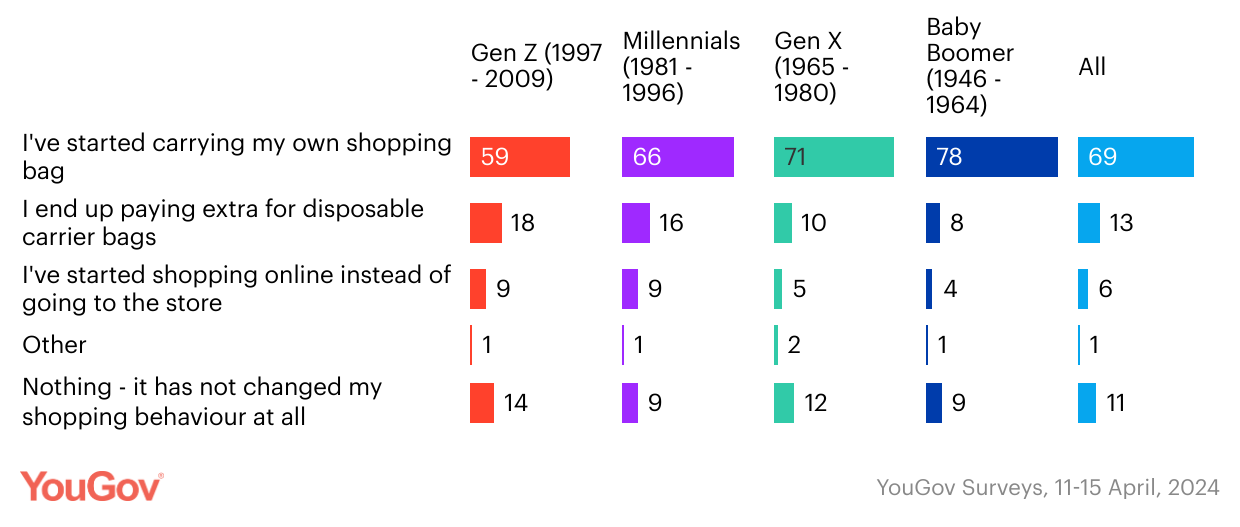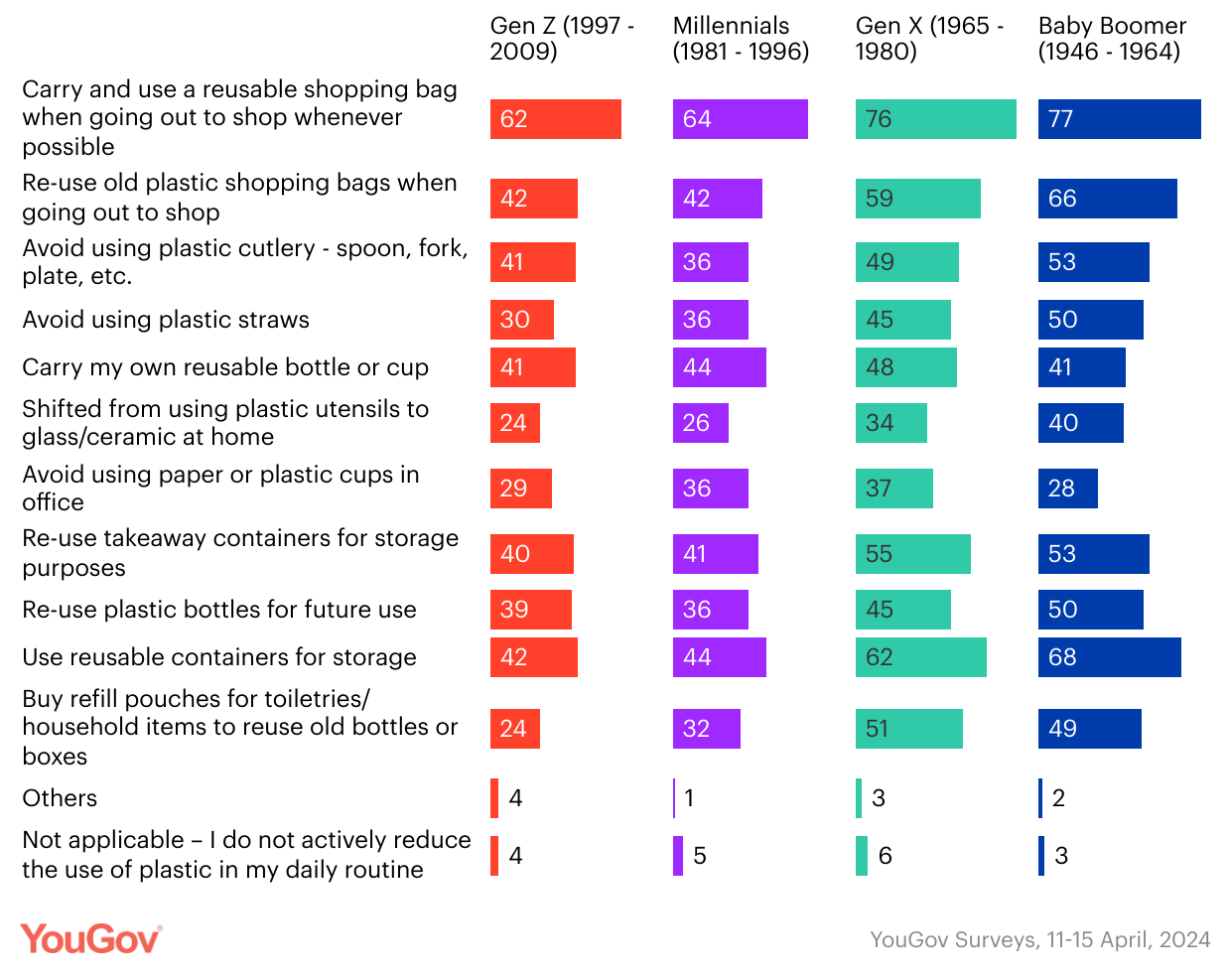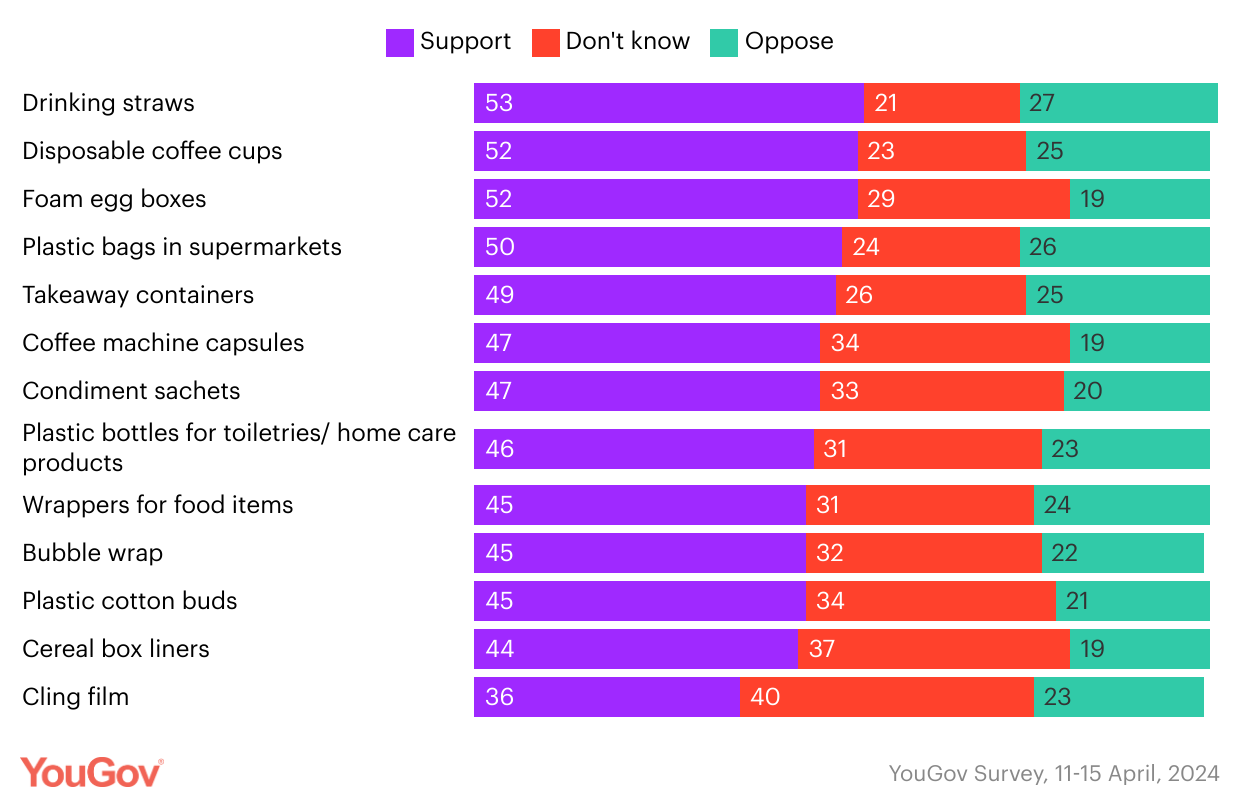A YouGov Poll conducted from Apr. 11 to Apr. 15, 2024, with a national sample of 1,033 Singaporeans, looked into plastic usage habits amongst Singaporeans.
According to YouGov, the data was weighted by age, gender, and location to be representative of all adults (18 or older) in Singapore.
The survey data was also split according to four generational cohorts:
- Gen Z (those born between 1997 - 2009),
- Millenial (1981 - 1996),
- Gen X (1965 - 1980), and
- Baby Boomers (1946 - 1964).
The poll found that majority of Singaporeans claim to have started carrying their own shopping bags.
However, Baby Boomer and Gen X Singaporeans were more active in reducing their plastic usage than Millenial and Gen Z folk.
Plastic bag charge effectiveness
Since Jul. 3, 2023, all large supermarket operators with an annual turnover of more than S$100 million have been required to charge customers at least S$0.05 per disposable carrier bag.
The charge applies to carrier bags of all material types.
The survey asked respondents how the charge affected their shopping behaviour.
According to YouGov, more than four in five Singaporeans said that it changed their usage of plastic bags, with one in eight saying it changed "to a very large extent".
The following chart shared by YouGov, however, also seems to show a difference in the effectiveness of the rule according to age:
 Screenshot from YouGov
Screenshot from YouGov
On the whole, seven in ten Singaporeans have started using their shopping bags in response to the new disposable carrier charges.
Millennials and Gen Zs, however, seem to have not taken up the habit as much as the Gen X or Baby Boomer cohorts.
While 78 per cent of Baby Boomer shoppers bring their own bags, only 59 per cent of Gen Z and 66 per cent of Millennial shoppers do the same.
It would also seem that younger consumers are more likely to spend on a disposable carrier bag or shop online.
Plastic usage in daily life
Respondents were also asked what actions they actively take to reduce the use of plastic in their daily routines.
The results suggest that carrying a reusable shopping bag was the most common practice adopted by Singaporeans to reduce plastic usage in their daily lives:
 Screenshot from YouGov
Screenshot from YouGov
A sizeable portion of Singaporeans across all age groups also seem to adopt a variety of other practices to reduce plastic usage.
These include reusing old plastic bags, avoiding plastic cutlery and reusing plastic bottles or takeaway containers.
All the same, the data shows a generational gap in plastic reduction efforts, with Baby Boomers and Gen X folk taking more initiative in reducing plastic usage via the above-mentioned actions as opposed to Gen Zs or Millenials.
Chi Wei Teo, General Manager of YouGov Singapore said: "As the data shows, the older cohort seem to be taking more responsibility in reducing plastic usage as compared to their younger counterparts."
He also noted a need for "greater understanding and involvement of youth to build momentum".
"Not just the government, but companies, brands and the general public need to create awareness on preserving the environment and adopt a greener lifestyle," Chi Wei said.
Likely to support plastic bans
YouGov also asked respondents whether they would support or oppose a theoretical ban on various plastic products.
The results showed that, across almost all listed products, Singaporeans were more likely to support than oppose a ban:
 Screenshot from YouGov
Screenshot from YouGov
Almost half of the respondents seem to support a ban on plastic bags in supermarkets (50 per cent), takeaway containers (49 per cent), coffee machine capsules and condiment sachets (47 per cent).
YouGov also noted that a ban across items listed was supported much more by Baby Boomers than the younger Gen Z and Millennial cohorts.
Top photo from Canva
If you like what you read, follow us on Facebook, Instagram, Twitter and Telegram to get the latest updates.



